FARMER IN JAPAN FIGHTS FOR FREEDOM OVER MEDICAL CANNABIS
Mr. Aoyama is currently on bail as an accused criminal and has been engaged in agriculture as usual. If a guilty verdict is issued, he’s facing up to 4 years in prison- even if the mitigating factors mentioned above are considered. He says his possession of cannabis was in accordance with Article 13 of the Japanese constitution which states that :
“All of the people shall be respected as individuals. Their right to life, liberty, and the pursuit of happiness shall, to the extent that it does not interfere with the public welfare, be the supreme consideration in legislation and in other governmental affairs.”
He further argues that his provision of cannabis to others was an act of compassion as it was for their medical needs for intractable diseases.
Based on Article 13, he is suing the court because the Cannabis Control Act is unconstitutional. To support this case, his friend, Yoshiyuki Honma, has started a petition at change.org because there are no precedents that have approved the Cannabis Control Law as unconstitutional. If he will be proven innocent, there is no doubt that cannabis in Japan will change drastically.
CLN had the opportunity to speak to this pioneering Japanese cannabis activist.
Cheddar(CLN): Please introduce yourself, your birthplace, and career.
Tetsuya: My name is Tetsuya Aoyama, I was born in Otofuke-cho, Kato-gun, Hokkaido.
I have been engaged in agriculture since when I was a kid as the eldest son of a farmer in Tokachi, Hokkaido. While working on my family’s farm, I have encountered cannabis and after learning more about it, I thought this plant should be legalized. So, I started the Tokachi Industrial Cannabis Processing Study Group in 2008.
I also started an incorporated Non-Profit Organization called ”Daisaku” to work on social issues in the local community in 2009. As part of this work, we focused on social welfare, particularly for people with disabilities, which included a home care business.
We helped people with disabilities work in restaurants, the agriculture industry, recycling shops, cleaning companies, landscaping businesses, and snow shoveling agencies, etc. The continuous employment and support we provided helped connect people with disabilities to the rest of society.
In 2011 and 2012, I applied for a cannabis cultivation license with my colleagues. The first time we received no response and so for our second attempt we submitted it with a lawyer’s opinion, but still, no permission was given.
There are rumors that issuing a cannabis cultivation license could negatively affect the career of the government employee who issued it, as well as having the cannabis cultivate under the license being strictly management by the government. This made me realize there was an immense gap between my philosophy and the government, so I gave up getting the license.
In 2015, I suffered a serious spinal cord injury. After the accident, I was unable to farm so I began to focus on treatment while going to the hospital regularly. I moved away from the field of physical labor from 2016 and started hosting Airbnb. I got great reputations and at that time I was given the title of one of the few super hosts in Tokachi and continue until I was arrested.
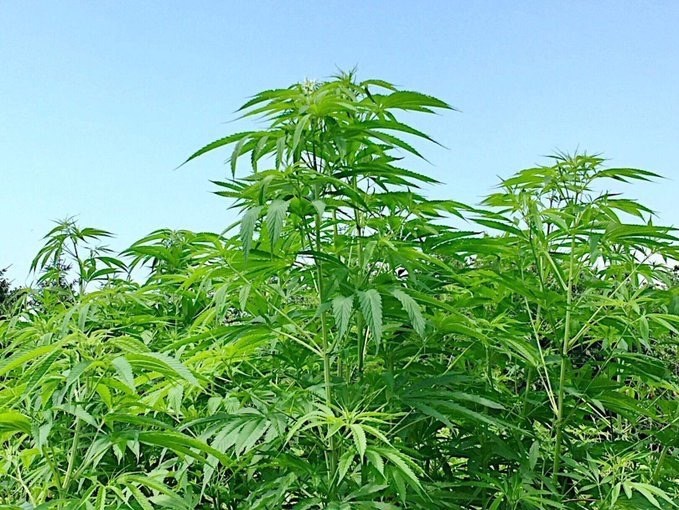

Why did you start using cannabis?
When I was young, a musician friend recommending cannabis to me. I heard that it was not illegal to smoke as long as I don’t sell, grow or possess, so I tried it as a youthful experience.
Amazingly, the music sounded better and the food became tastier. I felt bright and cheerful, and I realize that cannabis wasn’t as bad as I’d been told.
After a while, I got depression because my fiancé who had been with me for a long time after graduating from high school left me. I thought of committing suicide every day. One day, I got to recommend cannabis from my friend again.
I was so desperate that I said yes and after I inhaled the smoke, I was surprised by the change of consciousness that I felt. It was pleasant and the feeling I had worried about became clear in an instant. As a result, I was able to get out of my depression, and this was the moment I realize the wonderfulness of cannabis.
In particular, I think that the change in consciousness that cannabis brings allows us to see life from a different angle and gives us a fresh perspective. I think this is the major difference between cannabis and other antidepressants.
Soon after that, I discovered that native cannabis was growing around my parents’ home. I wasn’t aware of it before, but if I looked closely, I am surprised by the fact that the environment where I was born and raised surrounded by cannabis. I harvested and smoked it, and the feeling came back again. I became happy and recommended it to my friends around me.
Wild cannabis seems to have a slightly different mental effect depending on the place where they grow, so I began to research cannabis little by collecting seeds from all over Hokkaido and made natural hybrids.
What made you start offering non-profit cannabis even though you were at risk of your own arrest?
Since I was young, I am thinking about what I could do to make the world better.
The answer is cannabis for me. If you take cannabis, you will want to please the people in front of you and your hospitality thrive. If you have felt a real sense of cannabis’s spiritual effect, you can understand what I mean when I say that I believe that spreading cannabis can reduce the fighting and hate in the world.
I started to feel that my life’s mission was to spread cannabis.
After the bubble burst, I started to have questions about Japanese society because it was full of people who have psychiatric disorders, with an unusually high number of suicides and attempted suicides. As a result of recovering from depression, I began to distribute cannabis for free to friends who suffered from suicidal thoughts. At that time, it was easy to buy varieties of seeds from overseas such as “Sensi seeds” and so on.
And then, I started a Non-Profit welfare service to support people who are shut-ins and help them get a job. Known as “hikikomori” in Japan, it is a social phenomenon where adolescents and adults completely withdraw from society and seek extreme isolation.
Through this service, I found that there are people who committed suicide because of severe anxiety due to the side effects of large doses of psychotropic drugs. I became suspicious about highly dependent psychotropic drugs and sleeping pills and so I started offering cannabis to those with severe anxiety and depression.
In addition, I sought to improve my cannabis strains to better alleviate the pain from conditions like cancer and cerebral palsy.
But I wouldn’t say I had no fear of being arrested. However, when I thought about the souls of the people that are hurt daily and those fighting against suicidal thoughts, I was inspired to move forward with a positive attitude saying that my life is not going to be taken.
There are various products of cannabis such as buds, oil, cream, etc., were you carrying these products?
Basically, I was providing the tasty buds part because it’s got little tar and high medicinal properties. Also, in the Oriental Medicine Yin Yang Five-Elements theory, cannabis buds are Ying and hash is Yang, so I was making bubble hash with the intention of balancing.
Hash was separated at 0 ° C by isolation with ice water, and the remaining kief on the mesh was kneaded over time.
We created cannabis oil for oral consumption for those who cannot smoke due to cancer.
I mixed decarboxylated ground buds with olive oil and coconut oil and kept them warm for 48 hours with the rice cooker to extract the constituent.
I have also made THC-concentrated wax, but the main extraction method at that time was using butane gas, and I could not completely remove impurities. Plus, I am noticed that it’s not only about getting medicated. At present, we can make high-purity products using the supercritical carbon dioxide compression method, but the machine is around $100,000, so it is not financially feasible.
What kinds of issues did people have and how many people were relying on you and your cannabis? Were there patients all over Japan?
I mostly provided cannabis to people with mental illness to save them from the unusual situation in Japan where there are twice as many suicides every year than the number of victims of the Great East Japan Earthquake. I also provided cannabis to people with cerebral palsy and cancer.
I provided cannabis directly to over 300 people from Hokkaido to Okinawa. There are many people who thank me by taking my cannabis indirectly, so I assume there will be a lot more people who were relying on my cannabis.
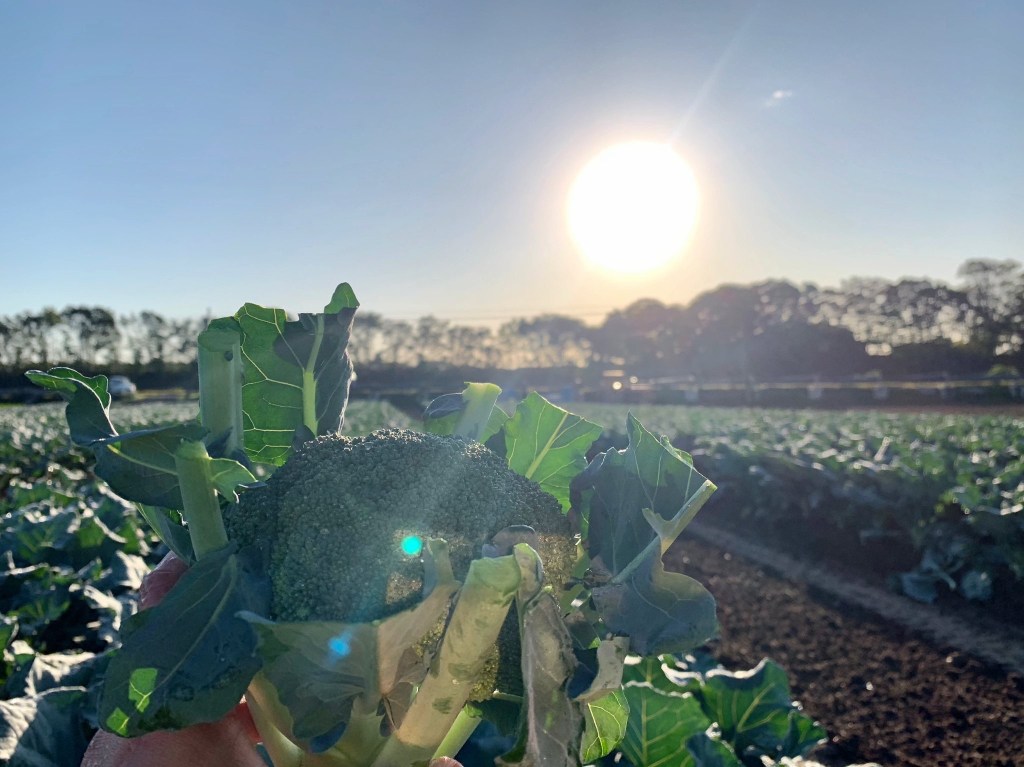
What kind of strains were you cultivating? Please tell us anything you have discovered through cultivation and research.
At first, I thought Hokkaido’s native cannabis “Dosanko” was stupid because of its low THC, but later, I discovered that it was a high CBD variety. So, I started researching it and began by crossing it with various strains from Amsterdam.
As a result, I found that “Cinderella 99″ made by Brothers Grimm Seeds. I found this strain had the best anti-cancer effects at the time and crossed it with “Dosanko”, and the resulting strain had 10-15% of THC and high CBD, which was very popular with many people who took it.
I saw it was showing great effects on mental illness, too, and a lot of lives improved, so I named it “Shin-dou(神童: God’s child)” and spread it as my main original strain.
29 kg of cannabis was confiscated by the authorities, and most of it was my “Shin-dou” strain.
Currently, Mr. Aoyama fighting for his innocence on humanitarian grounds for his possession of cannabis. He’s collecting signatures and he told us about the background and current status of the petition campaign.
I have been involved in cannabis activism since 2008, and my friends who know my circumstances have come up with this campaign and some celebrities are also favorable to me.
In addition, the people whom I provided medicinal cannabis also stood up and shared their many true experiences about cannabis usage.
In Malaysia, there was a similar case where Mr. Muhammad Lukman was sentenced to death over medical cannabis. A change.org petition was created to support him which gathered more than 70,000 signatures and he was later acquitted from the death sentence, which triggered the country to decriminalize cannabis.
I think we should be able to do the same in Japan.
Please tell us about your future prospects of cannabis.
First of all, decriminalization is the first thing we should do. I think this is possible right away. Japanese people have very disgusted by any illegal drugs which are the result of drug education from the Ministry of Health, Labor and Welfare. But Japanese people have had a good relationship with alcohol (perhaps too good!), which is more difficult to handle than cannabis. So once they experience cannabis, they should be able to accept it quite easily.
The usage of cannabis has broadly divided into industrial use, medical use and recreational use. Industrial cannabis, also known as hemp, along with hemp nuts, hempoil, etc. are not subject to Japan’s cannabis laws, and have recently become more popular because of this. The use of cannabis for medical purposes has become increasingly sought-after too.
There was a clinical trial of CBD in Japan, and although the path to medical usage of cannabis has been opened in a lot of countries through legalization, a lot of people are still thinking THC is bad and CBD is good. So I think it’s time, to tell the truth, that THC is actually the essence of medical effects.
Even now, people are suffering from cancer and other diseases. One of my best friends has depression and he is fighting with thoughts of suicide because of the side effects of psychotropic drugs, and another best friend is in need of cannabis because the existing legal drugs are not effective. For those who suffer from many intractable diseases, I sincerely hope that cannabis can be used as a medical treatment in Japan.
Good things will continue to spread, so if we don’t give up, I believe that cannabis can be legalized in Japan. In some states in the United States, in accordance with the legalization of cannabis, the elimination of criminal records relating to cannabis is considering.
It is the fact that there are many people who have lost their social status, injured their hearts, and injured their self-esteem due to their previous arrests.
But we shouldn’t have to kneel down on the ground and apologize for cannabis use because those laws are wrong and the world is strange. In order to convey that fact to everyone, I decided to appeal in court. And the volunteers who are activists stood up for me and started collecting signatures to make me innocent.
An interview by a foreign journalist club is scheduled to be held in Tokyo, and we are preparing to appeal to the Japanese Cannabis Control Law and publicize it to the world as a human rights issue.
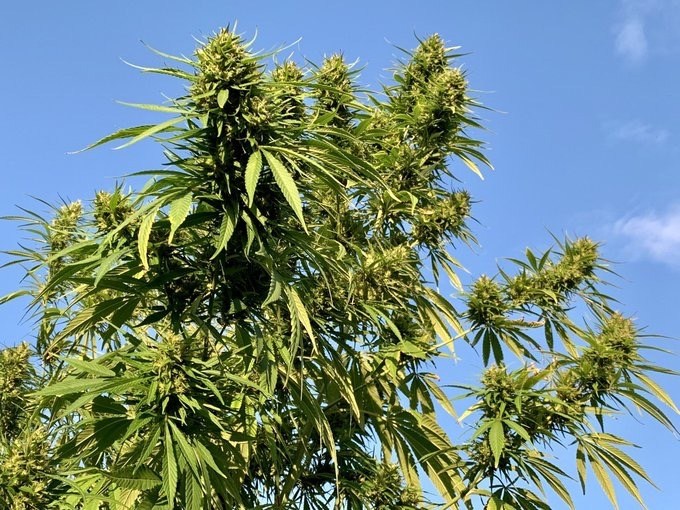
Do you have any last messages for our readers?
All human beings have walked through dark generations.
War, illness, crime, punishment, poverty, hunger, global environmental destruction, natural disaster, etc.
But a ray of light appeared there.
A plant called cannabis.
This plant has many benefits and it may help us overcome many intractable diseases, boost immunity, and heal the earth, and we’ve been using it together with people since the Jomon period(B.C.14000-3000).
This plant also affects people’s consciousness.
Think about Bob Marley and John Lennon. They both appealed to stop the war in part through smoking cannabis.
The change of consciousness by cannabis gives you the idea to stop fighting and co-prosper together.
Cannabis is the beginning to return the earth to be sustainable.
Cannabis is the beginning that people’s consciousness turns to overall happiness.
The truth of this world is that if we scramble and compete against each other, there is not enough. If we share with each other, there is plenty.
I hope that Japan’s first year of the “Reiwa” period will be also the first year of cannabis. I hope that the whole world will join hands and bring true peace.
Cannabis Control Law and Human Rights
Canada, several states in the US, and other parts of the world have been recognized cannabis for medical purposes. In addition, Canada “legalized” cannabis just a month and a half before Tetsuya’s arrest, on October 17, 2018.
However, in Japan, the use of cannabis for medical purposes as well as for recreational is still illegal and there is a risk of being arrest if you were found by the police.
Although the Japanese Cannabis Control Law does not state “use of cannabis”, but it clearly states “to apply or provide cannabis as a pharmaceutical product is prohibit”. This law prohibiting the “use of cannabis for medical purposes” is an obvious violation of the constitution and human rights according to Article 13 and the code of international human rights, along with the results of recent medical research on cannabis.
Furthermore, the Tokyo Olympics and Paralympics will be held next year in 2020and that will bring many people from all over the world. It will include those people who need cannabis for medical purposes. In order to care for these people, we must reconsider the idea of medical cannabis immediately.
There are many diseases that are still intractable. What if cannabis was the option to relieve you or help you deal with your illness, even if you cannot completely cure your issue? Is it really bad to take cannabis for a chronic illness or to provide cannabis to save people with incurable diseases? Is the law that should protect people from evil just making people evil?
In Canada, many well-known activists such as Rick Simpson, Mark Emery, Dana Larsen, and Ted Smith have opened up a forbidden plant with taking their own risk-taking and helping people, and Tetsuya may be the activist that leads medical cannabis legalization in Japan.
Sign the petition to support Tetsuya Aoyama
If you think this is a travesty of justice, sign the petition to Support Tetsuya’s Innocence.
His next court case will be coming in November.
Sources:
change.org: Support Tetsuya Aoyama’s innocence
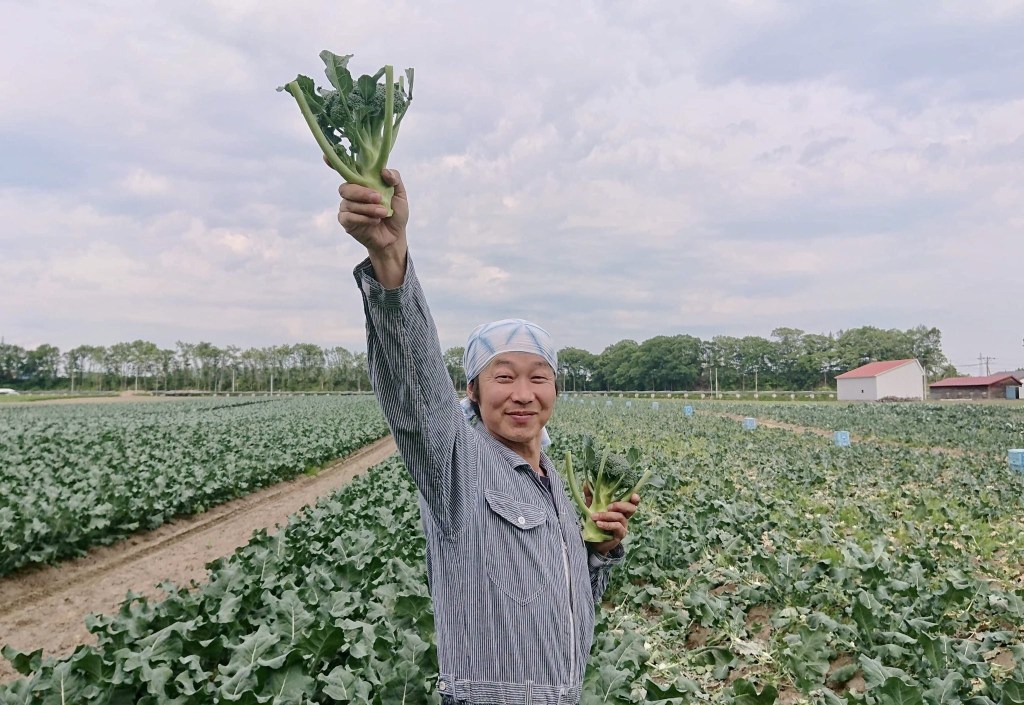
Come Follow Us on Twitter
Come Like Us on Facebook
Check us out on Instagram
And Sign Up for our Newsletter


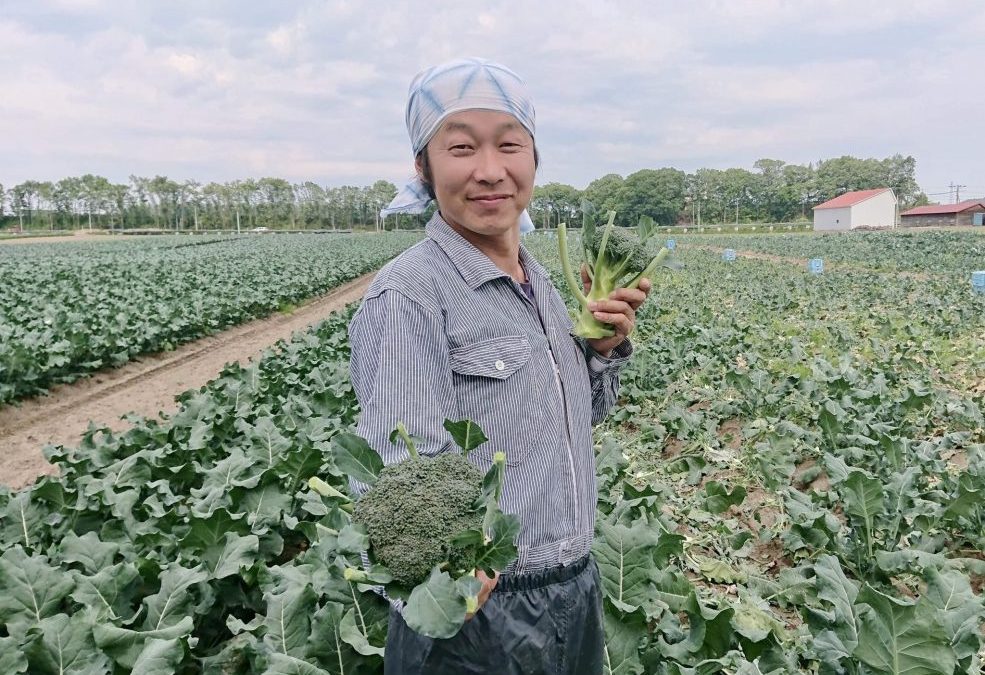

 CHEDDAR
CHEDDAR






